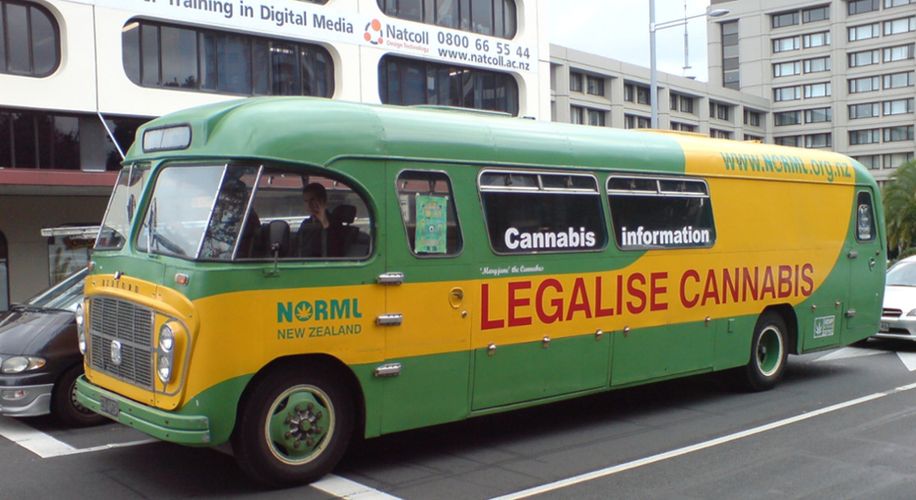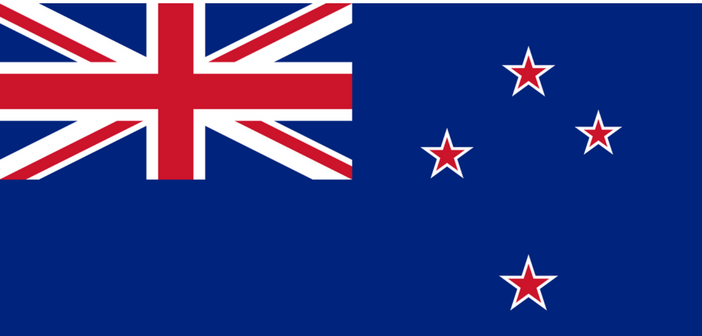The medical marijuana program isn’t expected to be operational for another two years, but in the meantime NZ will decriminalize cannabis for patients in their last year of life.
A new piece of legislation introduced in New Zealand’s federal legislature this week would establish a nationwide medical marijuana program for residents of the small island country. The act will also decriminalize illicit cannabis for patients with less than a year to live, as the government expects it will be at least two years before medical marijuana goes on sale.
According to the New Zealand Herald, the Misuse of Drugs Amendment Bill, introduced yesterday, would establish a medical marijuana program, eventually allowing Kiwis with chronic pain or life-threatening ailments to access cannabis or cannabis-derived products produced domestically at local pharmacies.
“Many New Zealanders will have watched a loved one struggling with a terminal illness. Medicinal cannabis gives them the option to find relief and make the most of the time left to them,” said New Zealand Health Minister David Clark in a statement after the legislation was introduced.
A detailed look at the proposed medical marijuana initiative has not yet been released to the public, but like a number of stateside and international laws, the program is expected to be limited in scope and take at least two years to establish rules and regulations before any New Zealand pharmacies begin dispensing THC or CBD.
However, unlike in America, where patients in need of medical marijuana have time and again uprooted their lives to resettle in a more cannabis-friendly environment, New Zealand’s new cannabis reform bill includes a pre-regulatory provision that, if passed, would allow a first-of-its-kind leniency for terminally ill New Zealanders, permitting their use of technically illegal cannabis without criminal consequences.
“There will be people who can’t wait. As an interim measure the legislation will create a legal defence for possession and use of illicit cannabis for people who are expected by their doctors to be in their last year of life,” Clark said. “This does not make it legal for the terminally ill to use cannabis, but it means that they will not be criminalised for doing so.”
And while that grace period approach has not been implemented in any American medical marijuana program, the concept itself is similar in effect to initiatives across the U.S. where liberal local municipalities have decriminalized small-scale possession while waiting for conservative lawmakers to come around on statewide cannabis reform.
Even with the caveat for the terminally ill, New Zealand’s legislation still has its fair share of critics, including the executive director of the New Zealand Drug Foundation Ross Bell, who is adamant that the bill, as initially described, falls short of assuring medical marijuana access for every Kiwi in need.
“The bill simply does not go far enough to cover people with chronic pain and any terminal illness and needs to be fixed by the select committee,” Bell told Radio New Zealand, insisting that all medical cannabis patients — not just those at their end of life — deserve legal protection. He did add a hint of optimism regarding further advancements that could occur down the line: “The proposed scheme is very similar to models that have been working well in places such as The Netherlands and Canada. The encouragement of a domestic supply market could be a game changer by expanding the range of products, as well as addressing the current expense of importing products from overseas.”
Bell’s immediate look towards a future with even wider medical marijuana access may seem rash in a country that introduced cannabis reform legislation only yesterday, but a look at medical marijuana programs across the U.S. shows that those goals are certainly achievable. Once initial medical access and regulations were established in states like New Jersey, New York, and Florida, as well as in fully legal states including Colorado, Washington, and Oregon, subsequent legislation and public calls to expand access followed suit shortly after.
Because the bill was introduced this week, no timetable has yet been established for legislative debate or an eventual vote.
credit:420intel.com




